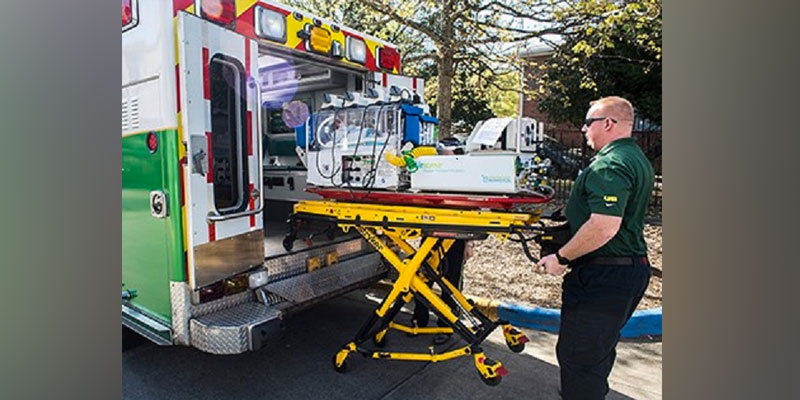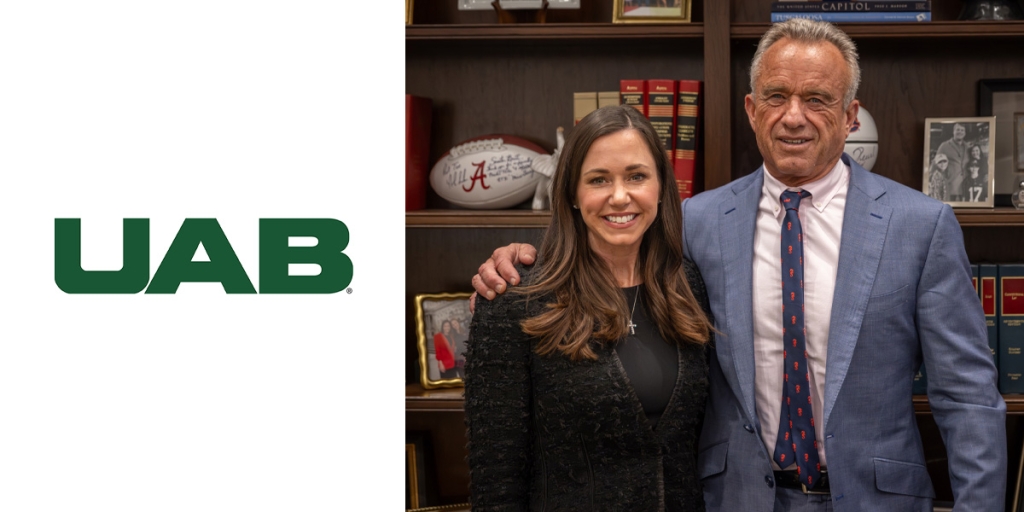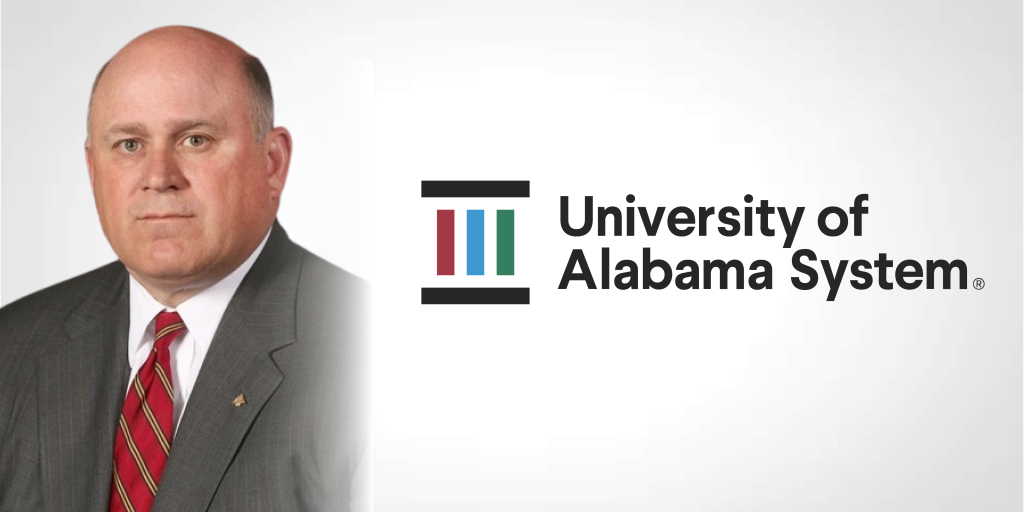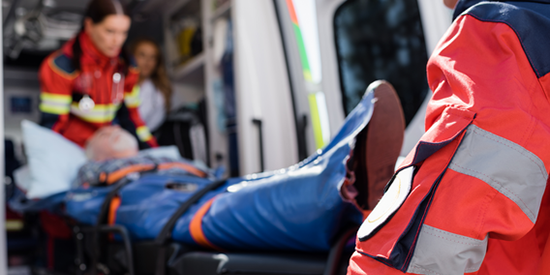Normally, babies are kept nice and warm. But if there are issues during labor or delivery that interrupt oxygen flow to the baby’s brain, that thinking gets reversed. That is when medical professionals say dramatically lowering the baby’s temperature – a process called induced therapeutic hypothermia – can be critical.
In some births, the flow of oxygen to the brain is compromised. The umbilical cord can become compressed, for example. Compromised oxygen intake can lead to neurologic and developmental problems for an infant that can be permanent. Cooling the baby into an induced state of hypothermia – 93 degrees Fahrenheit for 72 hours — can, in many cases, prevent or minimize that damage.
Critical Care Transport, a service of UAB Medicine at the University of Alabama at Birmingham, has added a device to its fleet of transport vehicles to provide “active cooling” of neonates during hospital transfers. CCT is a UAB service offering air and ground transport for the sickest patients in what is essentially a flying or rolling intensive care unit.
Studies in cardiac arrest patients have shown that the rapid, uncontrolled return of oxygen to the brain following a period of reduced oxygen intake has a detrimental effect. Inducing hypothermia moderates the brain’s need for oxygen, allowing time for it to heal and to better tolerate the gradual return of oxygen-carrying blood to the brain.
At a hospital like UAB, with its Regional Neonatal Intensive Care Unit, active cooling technology is readily available. The same equipment is not always found at small community hospitals. For best effect, cooling must be initiated within a window of four to six hours after birth. That’s where CCT comes in.
The service transported more than 400 babies last year for a variety of causes, including oxygen deprivation.
“When you add in travel time, that four- to six-hour window gets pretty small,” said Laura Lee Demmons, CCT director. “In order to achieve effective cooling during transport, we realized that we needed sophisticated equipment that was unlike the large cooling devices found in hospitals, but was small and portable so we could start active cooling as soon as possible,”
CCT’s new device is a cooling blanket, Tecotherm Neo, from Inspiration Healthcare. It is a water-filled blanket that circulates chilled water while wrapped around an infant, holding at a constant 93 degrees. The device monitors the infant’s temperature every two seconds and makes minute changes in the cooling fluid to ensure that the child’s temperature remains stable.
Active cooling, using a device such as the water-filled blanket, is a step up from passive cooling, which is the primary alternative in many community hospitals. Passive cooling involves basic actions such as not turning on heating units in warmers or isolettes.
“The blanket allows for rapid, controlled cooling to a precise temperature,” said Demmons. “Now, in a scenario where we get a call from a hospital hours away for transport, we know we can establish active cooling within the time frame needed for best results.”
CCT has been providing medical transports for more than 35 years and has transported more than 50,000 patients. The team employs a twin-engine Cessna Citation Bravo jet for long-distance transport and three ground units for regional and local moves.
“We implemented the capability in December and had our first infant candidate in January,” Demmons said. “Our transport crews and neonatologists are thrilled to know that they have it available for the infants of Alabama and beyond.”
This story originally appeared on the UAB News website.
(Courtesy of Alabama NewsCenter)













